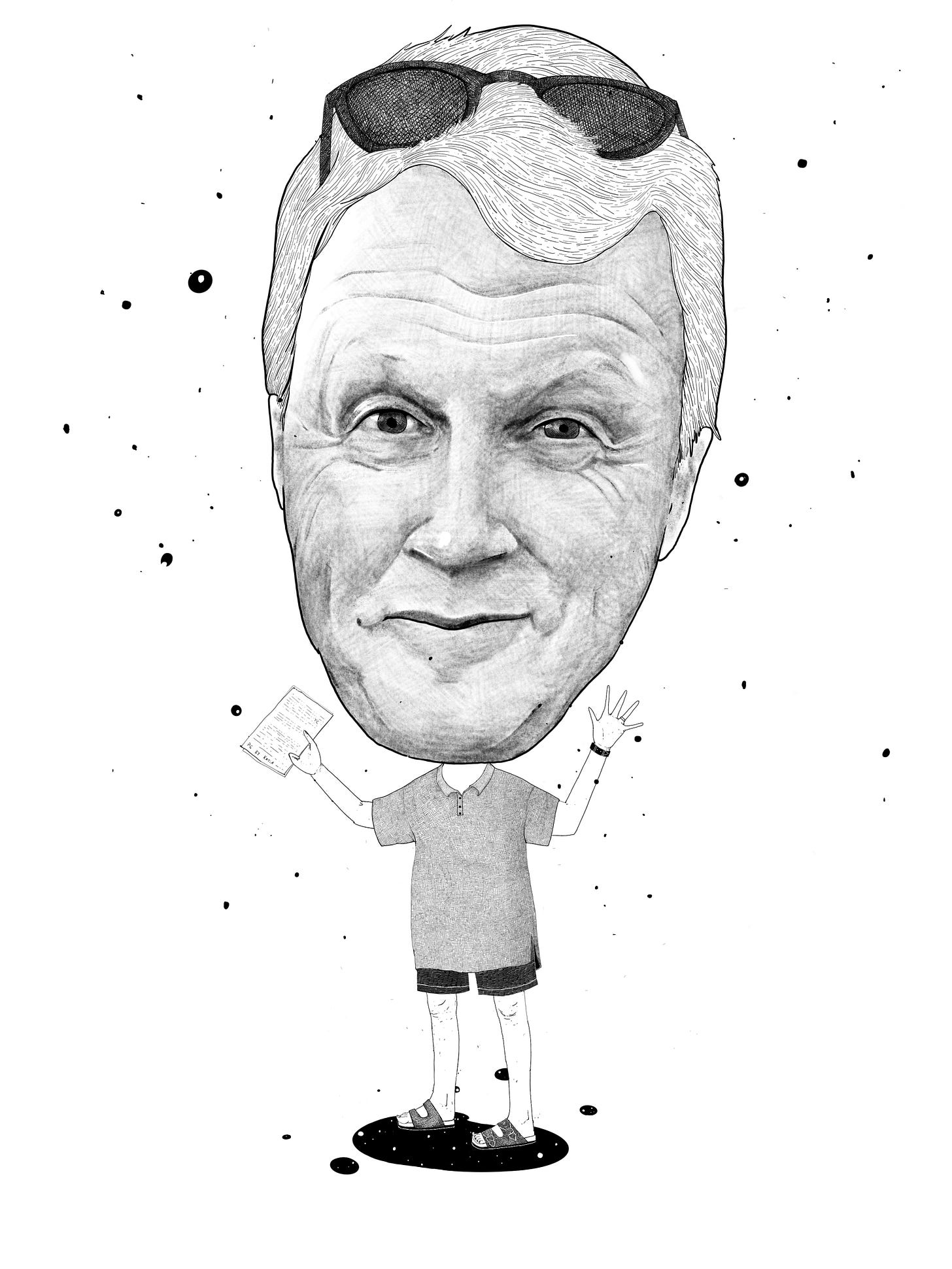

I first met Paul Graham while sparring during a Y Combinator interview.
As many have now done, I’d read Graham’s gateway drug to entrepreneurship, the essay that launched a thousand startups: ‘How to Start a Startup’. Cajoling a couple of reluctant co-workers at the flailing startup run by an inept sociopath that had been my introduction to Silicon Valley, we applied to the famed accelator’s 2010 summer program. In an improbable, momentous, and surely undeserved stroke of luck, we got an interview, followed by an offer to fund our non-existent company that was little more than a muddled idea. And the rest is history, or in this case, my memoir of what came after ‘Chaos Monkeys: Obscene Fortune and Random Failure in Silicon Valley’.
It’s thus entirely fitting that The Pull Request start with the same person that my tech trajectory did: PG himself.
(Answers are unedited.)
1. Why'd you move (back) to England? You seem so consummately American to me.
Originally we only meant to stay for a year. We wanted the boys to see what it was like to live in another country. Plus I was born here and had always wanted to try living here again. But we liked it so much we've stayed longer.
There are a lot of reasons we like it here, but if I had to put it into one word, I'd say that it's calmer. When you move to England, everyone seems to assume you've moved to London, but we live out in the countryside.
Part of the calmness comes from things being old. A lot of the houses where we live are four or even five hundred years old. Some fields are thousands of years old.
2. What's the future of what we now call journalism? Is it all Substack (a YC company)? Can we run the global-scale world with that model?
I worry about that. I worry that the kind of journalism I took for granted growing up was actually the result of specific conditions that have now disappeared. In particular, the "newspaper of record" that couldn't stray too far from politically neutral because they wanted to reach all the people in a particular region, both liberal and conservative, but which made so much from it that they could afford to support a thorough search for the truth.
We've got some things now that we didn't have then, like individual domain experts writing very deep explanations of things under their own names. But I worry there are some stories that might not get written now. Or that if they do, they'll be written in such a partisan way that they'll have no effect.
3. What's the company you turned down that you most regret not having invested in?
Unfortunately I can't name names, because we can't disclose which companies applied. There are none that I regret financially. There are a handful that have become fairly successful, but none, as far as I know, that would increase the value of YC's portfolio more than a percent or two.
There is one though that I regret rejecting because it was an idea I'd always wanted to fund. I'd been looking for this company for years, and finally it showed up. Unfortunately they seemed at the time to be imploding. There were two founders in the application, but only one showed up at the interview, because they'd had a falling out. (This is surprisingly common.) And since I had a bad habit of saying yes to ideas I loved, even though the founders were weak, I decided to be disciplined and say no. And now they're a household name, at least where the household = Twitter.
4. If Paul Graham hadn't become PG, what would you have liked to become? Full-time essayist or painter? Something else?
I'm not sure what you mean by PG. Do you mean an investor? Because that still feels to me like an accident. YC was just meant to be a part-time thing when we started it. The things I've always done are writing and programming, and that's what I'm doing now. So to me it feels like life is back to normal.
5. What's the biggest lesson from parenthood? Do you want your two boys to go into tech too, or are you indifferent?
The biggest lesson from parenthood? Hrm. Maybe how much of kids' personality is inborn. Which in turn implies that the way to be a good parent is not to squish your kids into some predetermined idea of the perfect child, but instead to understand them deeply and figure out what will help each one to flourish. Fortunately I really like doing that. I love it when I find something that interests one of them.
So you can imagine my answer to the second question. I don't care at all if they go into tech. What matters is that they find some sort of work that suits them.
6. Is COVID the final triumph of the screen and bits over the real world and atoms? (I tend to think so.)
No. It has accelerated a few trends. But a few years after it's over, we'll be acting as if it never happened. We're good at that.
7. Do you still invest in companies? If not, why not?
Sometimes I invest in the companies that present at Demo Day. But I'm pretty haphazard about it. I have no idea if I'm getting good returns, which probably means I'm not.



It's fun to learn that there is a personal/professional connection between Paul Graham (one great essayist) and Antonio Garcia Martinez (another great essayist). It seems a little rude to post a link to one essayist's work on another essayist's substack but if you're here then you're already a qualified writing connoisseur. Hopefully AGM will indulge me. Do check out Paul Graham the essayist. And be ready for your brain to light up like a Christmas tree. Here's one: http://www.paulgraham.com/say.html